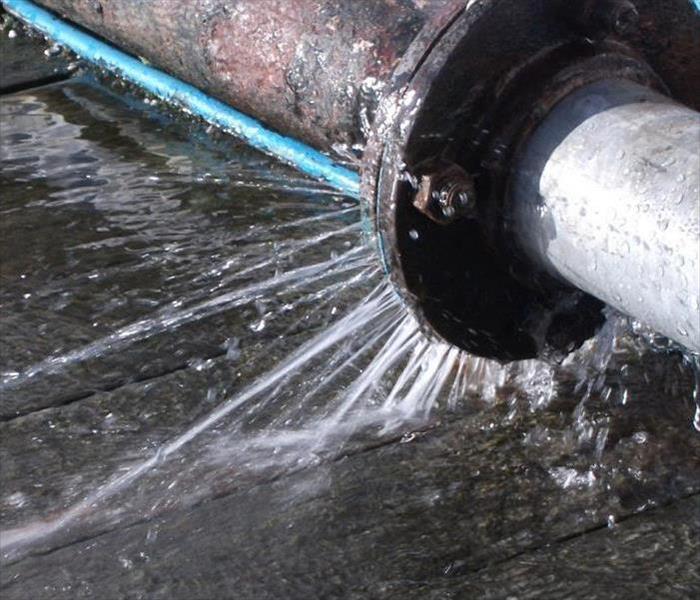How to Handle Black Water
3/10/2021 (Permalink)
Black water is defined as any floodwater containing contaminants or viruses the can potentially cause illness or infection. Sewage would qualify as Black water. Any event of sewage back up needs to be addressed immediately. Arming yourself with the knowledge of what causes a sewage back up may help you prevent this occurrence at you home.
Causes of Sewage Back Up
- Clogging – When your home’s main sewer line or drain pipe’s become clogged, there is potential for a sewage back up. An example of this would be if one toilet creates a sewage back up, the drain connected to that particular toilet has become clogged. If all of the toilets in your home begin to back flow, this is a signal that your main sewage line has become clogged. Clogs are caused by solid materials, such as hair or grease.
- Plant Roots – A tree’s root system has the potential to intertwine with sewage lines. Roots can grow into pipes and make holes in it and can also grow around the pipes and potentially crush them. Roots from nearby trees can also travel to your sewage line and cause damage.
- Aging Sewer Lines – Pipes used to be made of easily deteriorating materials such as cast iron and clay. Older systems made with these materials have the potential to break down and split, causing backups and flooding. Fortunately, durable plastic materials have become the plumbing standard.
- Heavy Rains – Sudden heavy rainfall can overwhelm Portland’s sewage system. If a public sewage system can’t withstand a sudden influx of rainwater, the excess water may travel into adjacent sewer lines. This can put your home at risk for backflow.
Preventing Backup at Your Home
- NEVER pour cooking grease down your drain. Oil can harden inside of your pipes as it cools and clog your pipes. The proper way to dispose of cooking grease is to pour it into a heat resistant container and place the container in the trash when it cools off.
- Do not flush paper products. Paper towels, diapers and feminine hygiene products have no business being flushed down the toilet and can very easily clog your drainage system. Dispose of these items properly of risk potential backups later.
- Update the pipes in your drainage system or remove tree roots. A good preventative measure to avoid costly repairs later is to replace your lead or clay sewer lateral pipe (the line in your yard) with an updated plastic pipe. It is also good to cut the tree roots back as they grow near your drainage system.
- Consider installing a backwater prevention valve. This fixture can prevent sewage from backing up into your home. Typically, backwater prevention valves are installed into a sewer line and sometimes into the basement drain line.
If you experience a sewage backup in your home, call SERVPRO of Tigard/Tualatin immediately to begin the remediation process. Handling black water yourself puts you at risk for disease and infection.
Our highly trained technicians are ready to respond immediately to flood or water damage at your Portland property. We have the experience, expertise, and training to restore your home or business quickly and properly. We use advanced inspection and extraction equipment to remove the black water quickly. Our technicians will monitor and document the drying process to ensure your property is back to normal.

 24/7 Emergency Service
24/7 Emergency Service
